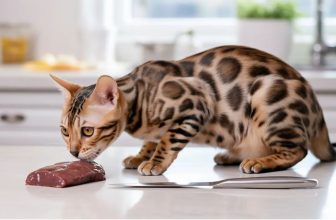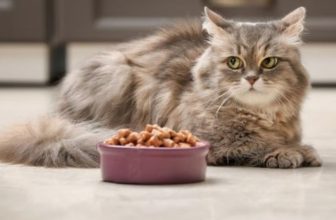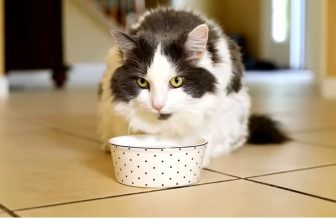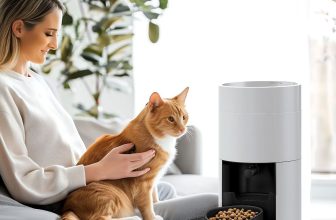What Can Kitties Eat? Best Complete Guide

What Can Kitties Eat: As a pet owner, you want to give your kitten the best start in life, and that begins with feeding them the right foods. But with so many options available, it can be tricky to know exactly what your kitty can eat and what’s best for their growth and health. In this guide, we’ll break down everything you need to know about feeding kittens, from their basic nutritional needs to safe human foods, harmful foods to avoid, and even healthy treats.
What Do Kittens Need to Eat?
Kittens, just like babies, require special nutrition to grow and develop properly. Unlike adult cats, kittens are in a rapid growth stage, so they need more calories, protein, and fat in their diet to fuel this process.
Protein is the most important nutrient for kittens, as it helps them build muscle and supports their immune system. Kittens need a diet that’s rich in animal-based proteins, such as chicken, beef, and turkey. This is why most high-quality kitten food will have protein as its main ingredient.
Fats also play a crucial role in your kitten’s diet. Healthy fats are essential for energy and also help their brain and vision develop. These fats are found in fish oils, chicken fat, and other animal fats commonly used in premium kitten foods.
In addition to protein and fat, kittens need a balanced intake of vitamins and minerals. These include calcium and phosphorus, which are necessary for strong bones and teeth, as well as taurine, an essential amino acid that supports heart health.
Unlike adult cats, kittens need to eat more frequently. Ideally, they should be fed 3-4 times a day when they’re young. As they grow older, you can begin to reduce their feedings to twice a day, but their food should remain nutrient-dense and appropriate for their age group.

When choosing the best food for your kitten, there are two main types: wet food and dry food. Both have their pros and cons, but the key is finding the one (or combination of both) that works best for your kitten.
Wet food is often the best choice for kittens because it’s more palatable and helps keep them hydrated. Since kittens have small bladders, they can benefit from the moisture content in wet food, which also helps prevent urinary tract issues. Look for high-quality canned kitten food that lists a protein source as the first ingredient and is free from fillers like corn and soy.
Dry food, on the other hand, is more convenient and can help keep your kitten’s teeth clean, thanks to its crunchy texture. However, some kittens may find dry food harder to digest, and it lacks the moisture content that wet food provides. If you choose to feed dry food, make sure your kitten has access to fresh water at all times.
For many pet owners, a combination of both wet and dry food works best. This allows your kitten to enjoy the benefits of both types while keeping their meals interesting and varied.
While commercial kitten food should be the primary source of nutrition for your kitten, certain human foods are safe and can even be beneficial to them. Here are some of the best options:
Can Cats Eat Chicken?
Yes, cats can eat chicken, but it should always be cooked thoroughly and without any seasoning. Chicken is a great source of lean protein that kittens can digest easily. It’s best to offer small, bite-sized pieces of chicken as a treat or mix it in with their regular food. Avoid giving your kitten chicken bones, as they can splinter and cause choking or digestive issues.
Can Cats Eat Fish?
Fish is another popular food that many cats love, but it should be fed in moderation. Salmon, tuna, and sardines are great options, as they are rich in omega-3 fatty acids that promote a healthy coat and support brain development. However, fish should be cooked and free from any bones or added salt. Avoid feeding your kitten raw fish, as it can contain harmful bacteria and parasites.
However, it’s essential to remember that human food should only be offered as an occasional treat and not a replacement for their primary kitten food. Always ensure the human food you’re offering is free from harmful ingredients like onions, garlic, and spices.
Foods Harmful to Cats
Several common foods are toxic to cats and should be completely avoided. Some of these foods can cause serious health issues, including kidney failure, poisoning, and digestive problems.
Onions and garlic are highly toxic to cats, even in small amounts. These ingredients can cause a condition called hemolytic anemia, which destroys red blood cells and can lead to organ failure.
Chocolate is another food that’s toxic to cats due to theobromine, a compound found in cocoa. Chocolate poisoning can lead to symptoms like vomiting, diarrhea, seizures, and even death.
Grapes and raisins should also be avoided, as they can cause kidney failure in cats. Although not all cats are affected by grapes or raisins, it’s safer to keep these foods away from your kitten altogether.

Dairy products like milk and cheese should be avoided as well. While kittens may enjoy the taste, many cats are lactose intolerant, meaning they have trouble digesting lactose. This can lead to stomach upset and diarrhea.
Treats are a great way to bond with your kitten and offer extra nutrition in the form of healthy snacks. However, treats should be given in moderation, as they can add unnecessary calories to your kitten’s diet.
Some healthy treat options for kittens include:
- Cat grass: This is a great natural treat that can help with digestion. Cats love nibbling on cat grass, and it provides essential fiber.
- Small amounts of cooked meat: You can offer your kitten bite-sized pieces of cooked chicken, turkey, or beef. These are high-protein treats that are easy for kittens to digest.
- Catnip: While not exactly a treat in the traditional sense, many cats enjoy catnip, which can serve as a fun and engaging treat.
Be careful not to overfeed treats, as too many can lead to obesity. Stick to giving them only a small amount once or twice a day.
Homemade Cat Food Recipes
Making your kitten food at home can be a rewarding way to ensure your kitten is getting healthy, wholesome ingredients. However, it’s essential to make sure that the homemade meals you prepare are balanced and provide all the necessary nutrients your kitten needs.
Here’s a simple recipe to try:
Chicken and Pumpkin Stew for Kittens
- 1 chicken breast (cooked and shredded)
- 1/4 cup cooked pumpkin (puree, no added sugar)
- 1/4 cup cooked carrots (mashed)
- 1 tablespoon fish oil (for omega-3 fatty acids)
Mix all ingredients and serve in small portions. This dish is rich in protein, fiber, and healthy fats, making it a great treat for your kitten. However, if you’re feeding homemade food regularly, it’s essential to consult your vet to ensure you’re meeting all your kitten’s nutritional needs.

Frequently Asked Questions: What Can Kitties Eat
A1. Milk is not ideal for kittens after weaning. Many adult cats are lactose intolerant, meaning they can’t digest milk properly. This can lead to stomach upset, diarrhea, and discomfort.
A2. Kittens can start eating wet and dry food at around 4-6 weeks old. However, it’s best to start with wet food because it’s easier for them to digest. As they age, you can introduce dry food to help with dental health.
A3. The amount to feed your kitten depends on their age, weight, and activity level. On average, kittens should eat 1/4 to 1/2 cups of food per meal, but always follow the recommendations on the food packaging or consult your vet for specific feeding guidelines.
A4. If your kitten has diarrhea, offer bland foods like boiled chicken or rice. Avoid giving them anything rich or fatty, and consult your vet if diarrhea persists for more than a day.
A5. Most cats transition from kitten food to adult food at around 12 months of age. However, some larger breeds may need to stay on kitten food longer. Check with your vet for personalized advice. Q1. Can kittens have milk?
Q2. When is it safe for kittens to eat dry or wet foods?
Q3. How much should I feed my kitten?
Q4. What do you feed a kitten with diarrhea?
Q5. When should I switch from kitten food to adult food?
Conclusion
Feeding your kitten the right foods is crucial to their health and well-being. By choosing the best kitten food, offering safe human foods as treats, and avoiding harmful ingredients, you can ensure your kitten grows up healthy and strong. Remember, when in doubt, always consult with your vet to make sure your kitten’s diet is balanced and meets their specific needs. Happy feeding!
This blog post follows your outline and provides valuable, clear information to your readers, while also maintaining a friendly, approachable tone. Let me know if you’d like any adjustments!







